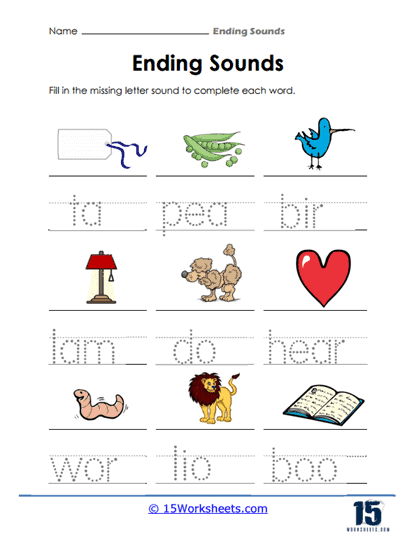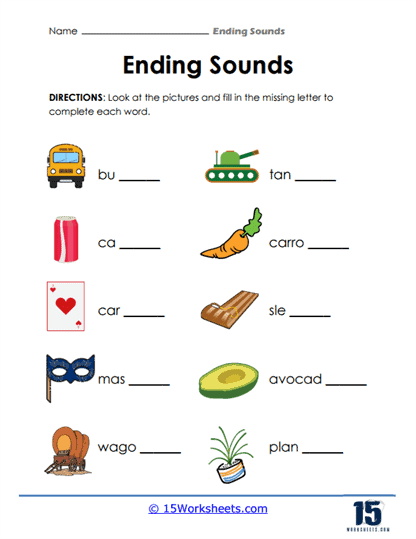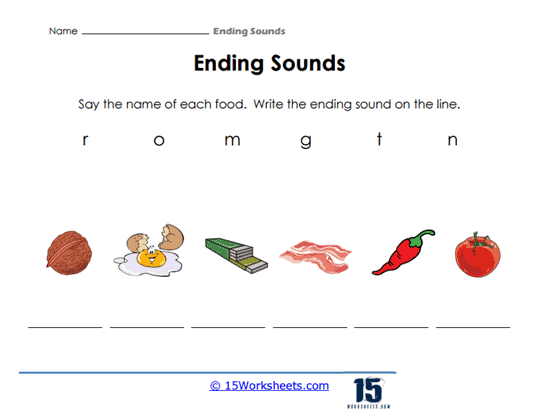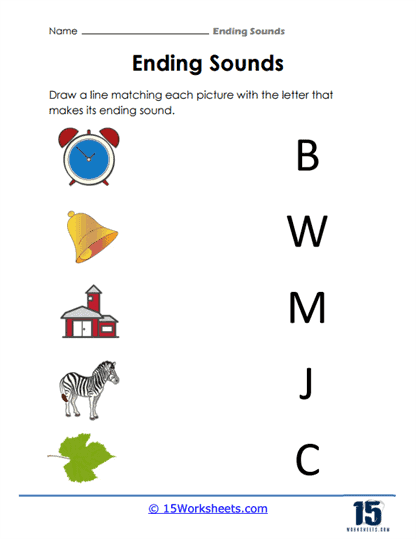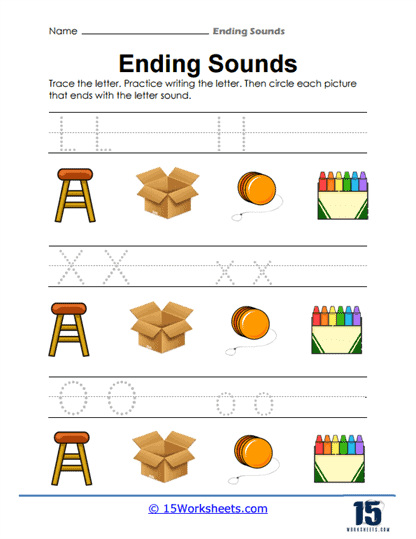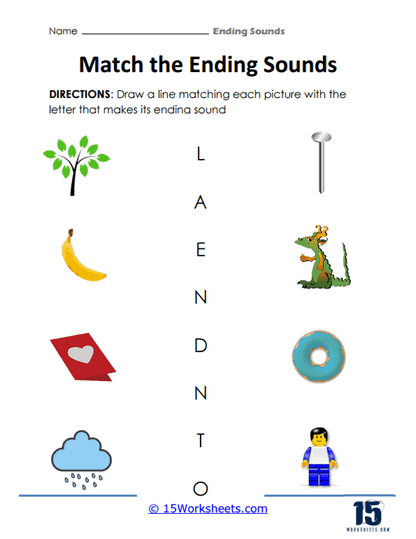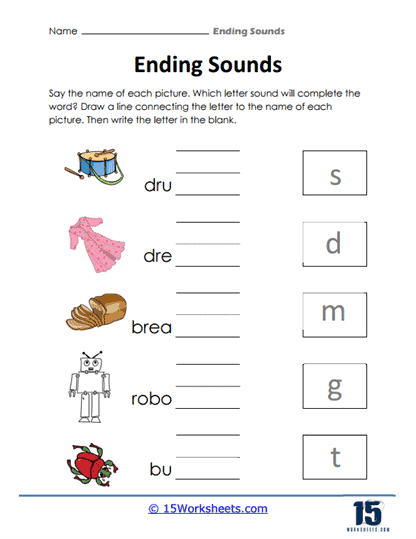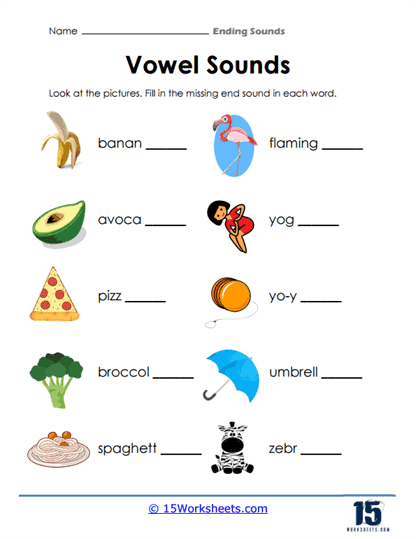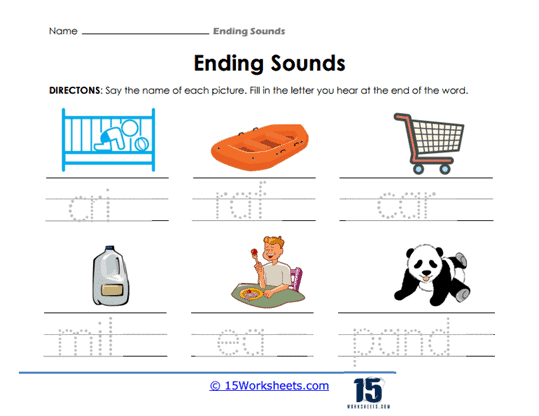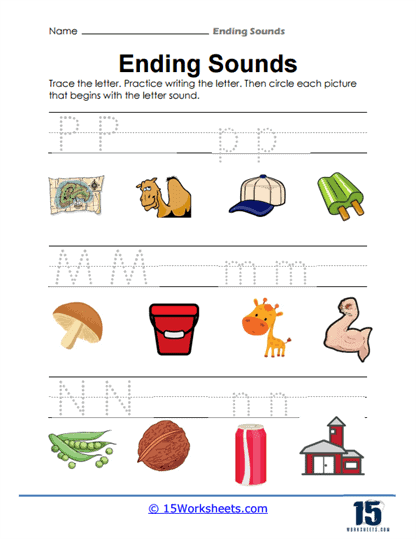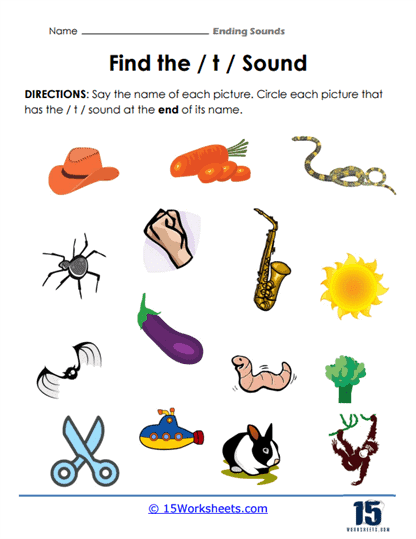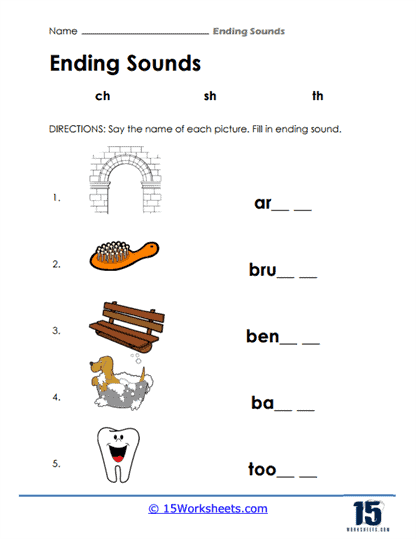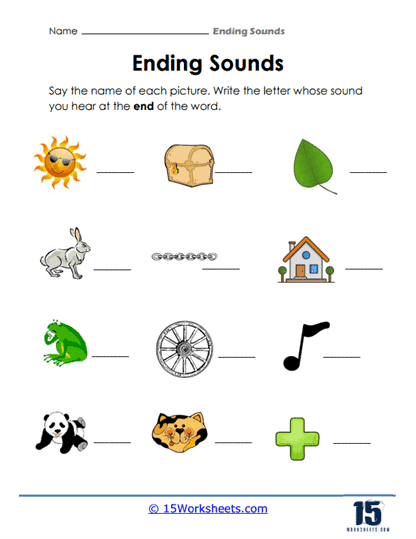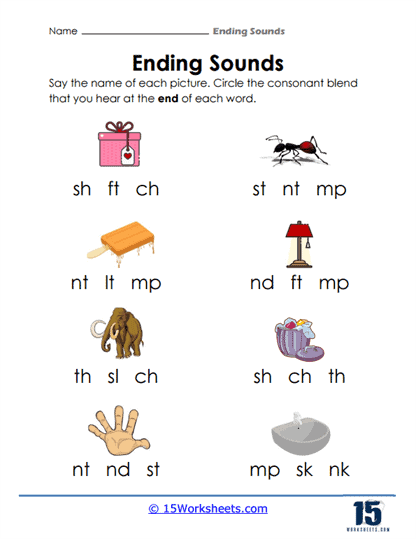Ending Sounds Worksheets
All About These 15 Worksheets
The ability to recognize and understand ending sounds is a fundamental skill in phonics and early literacy development. To help students master this skill, we present a collection of Ending Sounds worksheets. This collection is designed to provide students with a structured and engaging way to practice and refine their knowledge of ending sounds in words.
What are Ending Sounds Worksheets?
Ending Sounds Worksheets are educational resources designed to help students practice and learn about the sounds that come at the end of words. These worksheets often include various activities, such as matching, sorting, or writing exercises, that focus on the sounds of the letters of the alphabet and how they combine to form words.
What Are Common Ending Sounds of Words?
Common ending sounds of words, also known as word-final phonemes or word endings, are sounds that frequently appear at the end of English words. These sounds can play a crucial role in word pronunciation and word families, which can help children improve their reading and writing skills. Here are some common ending sounds in English words:
- /t/ as in “cat” or “slept”
- /d/ as in “red” or “played”
- /k/ as in “book” or “speak”
- /g/ as in “dog” or “fog”
- /n/ as in “sun” or “open”
- /m/ as in “team” or “swim”
- /s/ as in “bus” or “horses”
- /z/ as in “dogs” or “bees”
- /p/ as in “jump” or “snap”
- /b/ as in “cub” or “web”
- /ʃ/ as in “wish” or “splash”
- /tʃ/ as in “watch” or “lunch”
- /ŋ/ as in “sing” or “long”
- /θ/ as in “bath” or “teeth”
- /ð/ as in “clothe” or “breathe”
- /f/ as in “cliff” or “roof”
- /v/ as in “dove” or “shelve”
- /l/ as in “tall” or “school”
- /r/ as in “bear” or “car”
- /j/ as in “boy” (sound: /ɔɪ/) or “play” (sound: /eɪ/)
Teaching children about common ending sounds helps them recognize patterns within words and develop a better understanding of English phonetics. This knowledge can improve their reading and writing abilities, as well as enhance their overall language skills.
The Importance of Ending Sounds
Understanding ending sounds in words is a crucial aspect of phonemic awareness, which is the ability to hear and manipulate individual sounds in spoken language. Here are some reasons why ending sounds are essential for students:
- Reading Comprehension: Proficiency in recognizing ending sounds enhances a student’s ability to decode and read words accurately. It enables them to grasp the meaning of words more easily, improving overall reading comprehension.
- Spelling Accuracy: When students are familiar with ending sounds, they are better equipped to spell words correctly. This is especially important as they progress in their writing skills and begin to compose sentences and stories.
- Vocabulary Development: Exploring ending sounds exposes students to a wide range of words. This, in turn, enriches their vocabulary, making them more effective communicators and better readers.
- Listening Skills: Recognizing ending sounds also sharpens a student’s listening skills. They become more attuned to the sounds in words, which can help them follow instructions more accurately and understand spoken language better.
This collection of Ending Sounds worksheets is a valuable resource for educators and parents dedicated to supporting their students’ phonics and literacy development. Mastering ending sounds is not merely an academic exercise; it’s a fundamental skill that opens the doors to effective communication and language proficiency.
By using these engaging worksheets, students will strengthen their ability to read, write, and understand language with confidence. This collection is an investment in their future success, ensuring they have a solid foundation in phonemic awareness, spelling, and vocabulary. Equip yourself with these worksheets and watch your students excel in their journey towards becoming skilled and confident readers and writers.

